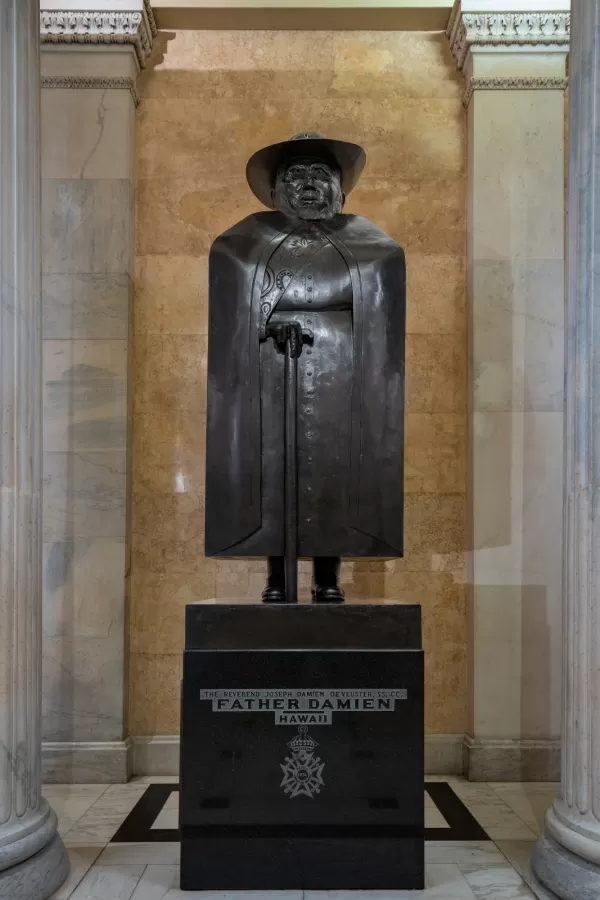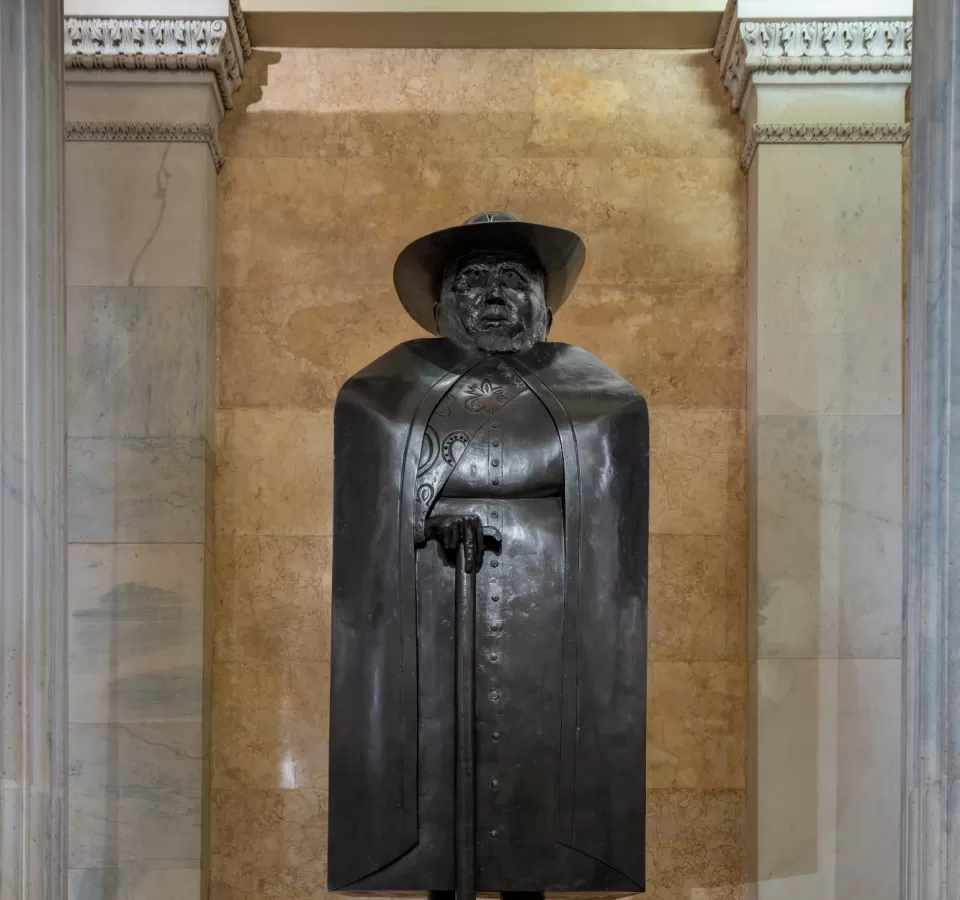This statue of Father Damien was given to the National Statuary Hall Collection by Hawaii in 1969.
The bronze statue is based on photographs taken of Father Damien near the end of his life, with the scars of his disease visible on his face and his right arm in a sling beneath his cloak. His broad-brimmed hat was traditionally worn by missionaries. His right hand holds a cane.
Hawaii's Statuary Hall Commission received offers from 66 artists to create the statue of Father Damien for the Capitol and selected seven to submit models. New York sculptor Marisol Escobar's contemporary design was chosen over more classically styled representations. Aware of Damien’s fondness for carpentry as a recreation, she first created a full-size model in wood, her preferred medium. The plaster model that she then created for casting was broken on its voyage to the foundry in Viareggio, Italy; a second plaster model reached Italy but was then lost. Finally, a wax impression of the statue reached the foundry. The bronze statue was shipped to New York, where it lingered because of a longshoremen’s strike, so a second statue was sent directly to Washington, D.C.
This statue and that of King Kamehameha I, Hawaii's other gift to the National Statuary Hall Collection, were unveiled in the Capitol Rotunda on April 15, 1969, 80 years after Father Damien's death.
The statue's design is typical of the sculptor's work; Marisol Escobar is known for her portraits with faces, hands and feet attached to large blocks of wood. In this case in particular, it reflects her decision "to undertake the work directly and simply in much the same way Father Damien did his work."
Podcast Episode: Women in Capitol Art
This podcast is part of the Shaping History: Women in Capitol Art series created by the U.S. Capitol Visitor Center. Listen below to hear about the women artists, including Marisol Escobar, who created statues in the National Statuary Hall Collection.

